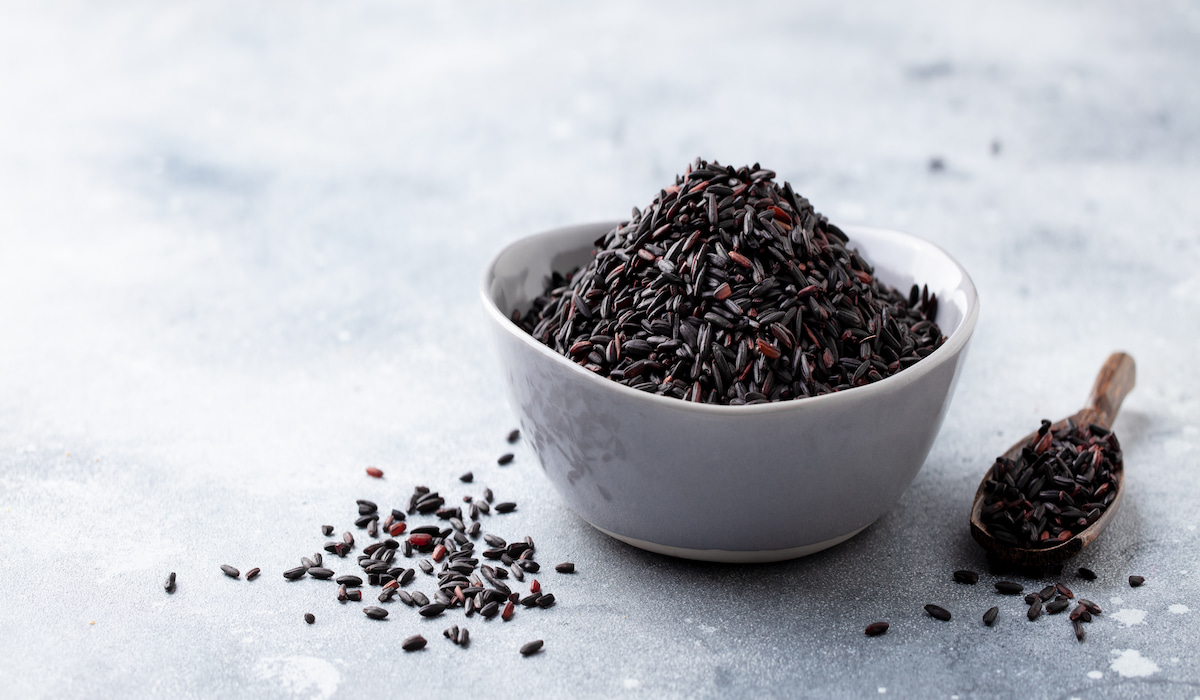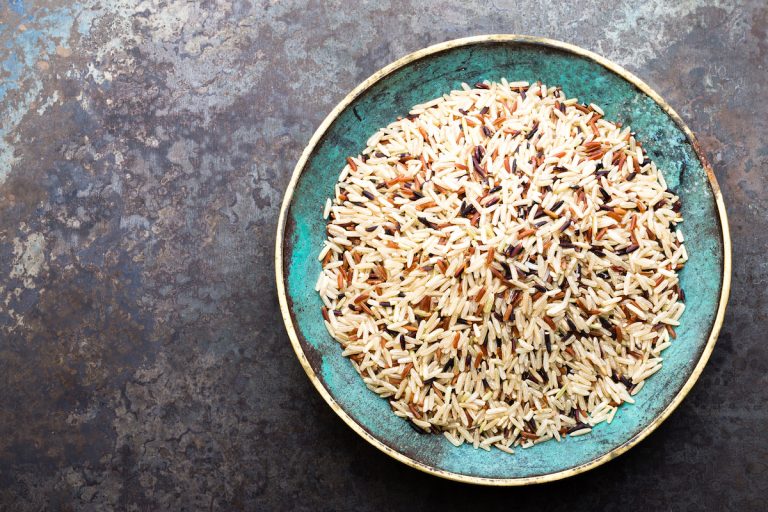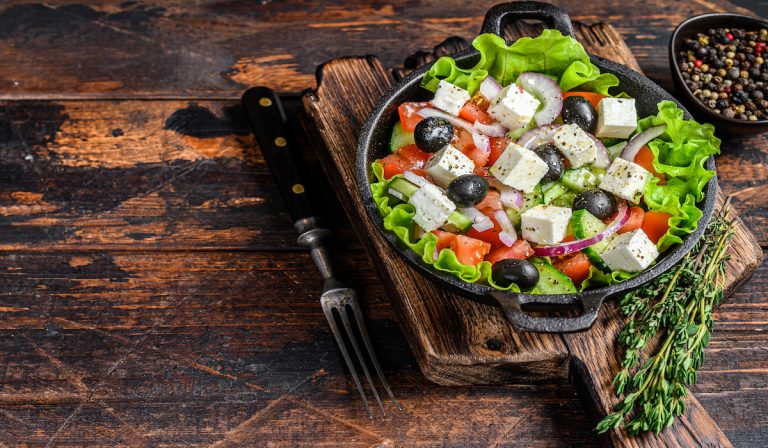Is Black Rice Paleo? (Is It Carb Rich?)
Black rice contains more protein and antioxidants than brown rice and white rice. Knowing this, you may be speculating if it is paleo.
Is black rice paleo?
Black rice is not paleo. While its high protein and antioxidant content are desirable in paleo foods, black rice is still a grain. And going by one of the cardinal guidelines of paleo, you must avoid all grains (including whole grains) when on a paleo diet.
This article shares more insight into black rice’s paleo-friendliness and health benefits. Read on for more.
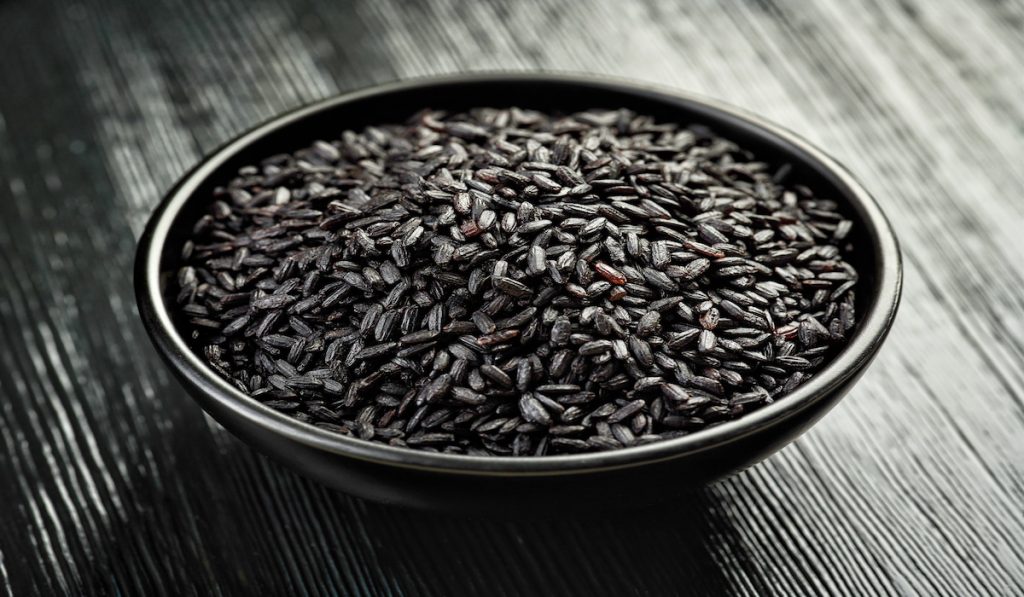
Is Black Rice Paleo?
Black rice is not paleo. Like every other grain (whether whole or not), you should not include black rice in your paleo diet.
Grains are generally excluded from paleo diets because of their high phytate content. Phytic acid is an antinutrient; it binds certain nutrients and keeps the body from using them. Hence, the exclusion of grains from paleo.
You may notice that some paleo followers promote the inclusion of small to moderate amounts of white rice in paleo diets.
Well, they do this because white rice does not have bran. Since most of the phytic acid in rice is in the bran, white rice should contain little or no phytic acid.
Unlike white rice, black rice has bran. So, it should contain significant amounts of phytates. Therefore, it is not suitable for a paleo diet – not even a flexible paleo diet.
Interestingly, while black rice is not suitable for a paleo diet, it is pretty nutritious. Top amongst its desirable nutritional offerings is its antioxidant content. Black rice has perhaps the highest antioxidant effect among the various types of rice.
Black rice bran contains an impressively high level of anthocyanins. Those anthocyanins contribute to the high antioxidant properties and the blackish or dark purple color of black rice.
Is It Carb Rich?
Black rice is rich in carbohydrates. However, it contains fewer carbohydrates than white rice and brown rice.
In one cup of cooked black rice, you will get around 34 grams of carbs. But in one cup of cooked white rice and one cup of cooked brown rice, expect 53 grams and 52 grams of carbs, respectively.
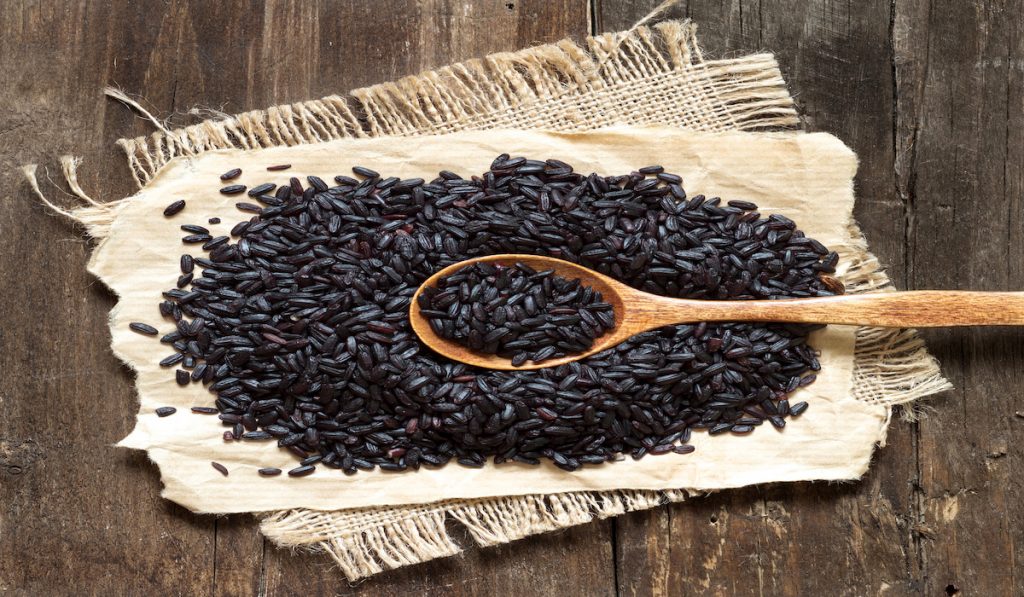
Health Benefits of Black Rice
Black rice might not be ideal for paleo dieting, but if you eat it, it can help your health in the following ways:
It Can Help Mitigate the Effects of Oxidative Stress
As we hinted earlier, black rice is chock-full of antioxidants.
In fact, it has more antioxidants than other types of rice. So, when you eat black rice, you can expect its antioxidants to help mitigate the effects of oxidative stress in your body.
Through its antioxidants, black rice can protect your body from cell damage. It will also slow the signs of aging and reduce the risk of some diseases.
The diseases antioxidants leave you less predisposed to are cancer, Alzheimer’s disease, heart disease, and diabetes.
Helps With Blood Sugar Control
While black rice is relatively rich in carbs, its high fiber content can help control blood sugar. Since black rice has high levels of dietary fiber, it can reduce the rate of sugar digestion, unlike white rice.
In other words, the dietary fiber in black rice can increase the time it takes to digest sugar. As a result, you will not experience sharp spikes in blood sugar levels.
It Might Help With Weight Loss
Compared to white rice, black rice has more protein and fiber.
So, when you eat black rice, you are more likely to feel fuller with smaller portions. This way, you’d have fewer cravings and more control over how many calories you consume.
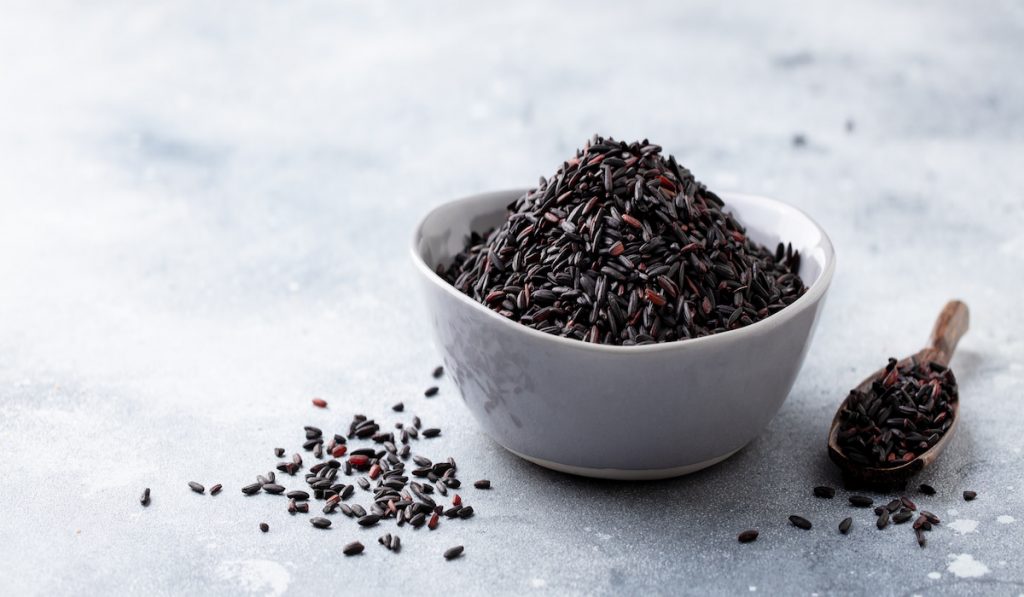
Black Rice May Be Beneficial to Heart Health
Anthocyanins – one of the predominant antioxidants in black rice – show some lipid reduction activity in animal studies.
Anthocyanins can help reduce the levels of triglycerides and LDL (low-density lipoprotein, a form of cholesterol) in animal subjects. Anthocyanins may also prevent plaque buildup.
With reduced levels of LDL and triglycerides and no plaque buildup, the chances of heart disease are low.
While the studies were on animals, the effects are promising. So, there is a chance that black rice may help keep your heart healthy and prevent heart disease.
Black Rice May Improve Your Eye Health
Black rice contains significant amounts of lutein and zeaxanthin – two carotenoids that protect the eye from damage.
Lutein and zeaxanthin protect the eyes from damage by free radicals. Apart from that, they filter harmful UV rays out of the eyes. By filtering UV rays, lutein and zeaxanthin prevent retinal damage.
Some studies also suggest that lutein and zeaxanthin play a vital role in preventing macular degeneration, cataracts, and diabetic retinopathy.
Besides lutein and zeaxanthin, some of the anthocyanins in black rice have protected the eyes of animal subjects from retinal damage.
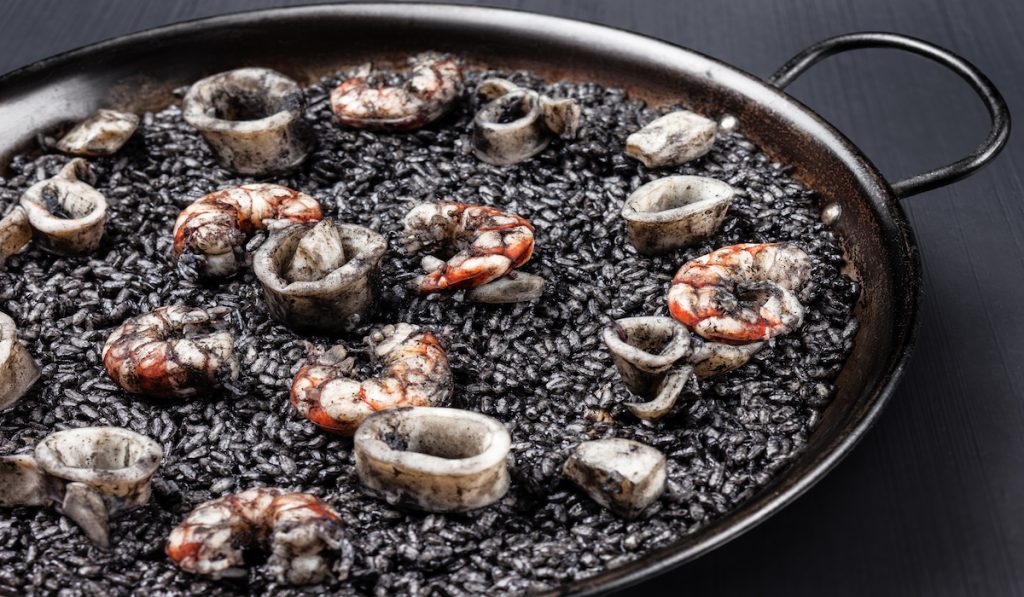
Black Rice Is Gluten-Free
If you have celiac disease, you already know you must avoid a wide array of grains, including wheat, rye, and barley. But black rice might actually be OK for your consumption.
Black rice is naturally gluten-free. So, if you really want some grains in your gluten-free diet, you may consider adding black rice.
Final Take
As with most grains, black rice is not paleo. It has significant amounts of phytate – an antinutrient – making it non-paleo. However, while black rice is not paleo, it is pretty nutritious. It contains relatively high levels of antioxidants, dietary fiber, and protein.
Resources
- https://foodisgood.com/is-black-rice-paleo/
- https://www.healthline.com/nutrition/black-rice-benefits
- https://choosingnutrition.com/can-you-eat-rice-on-paleo/
- https://ultimatepaleoguide.com/rice-is-it-paleo/
- https://www.healthline.com/health/carbs-in-rice
- https://www.webmd.com/diet/health-benefits-black-rice#
- https://www.ulamart.com/blog/forbidden-rice-benefits/

